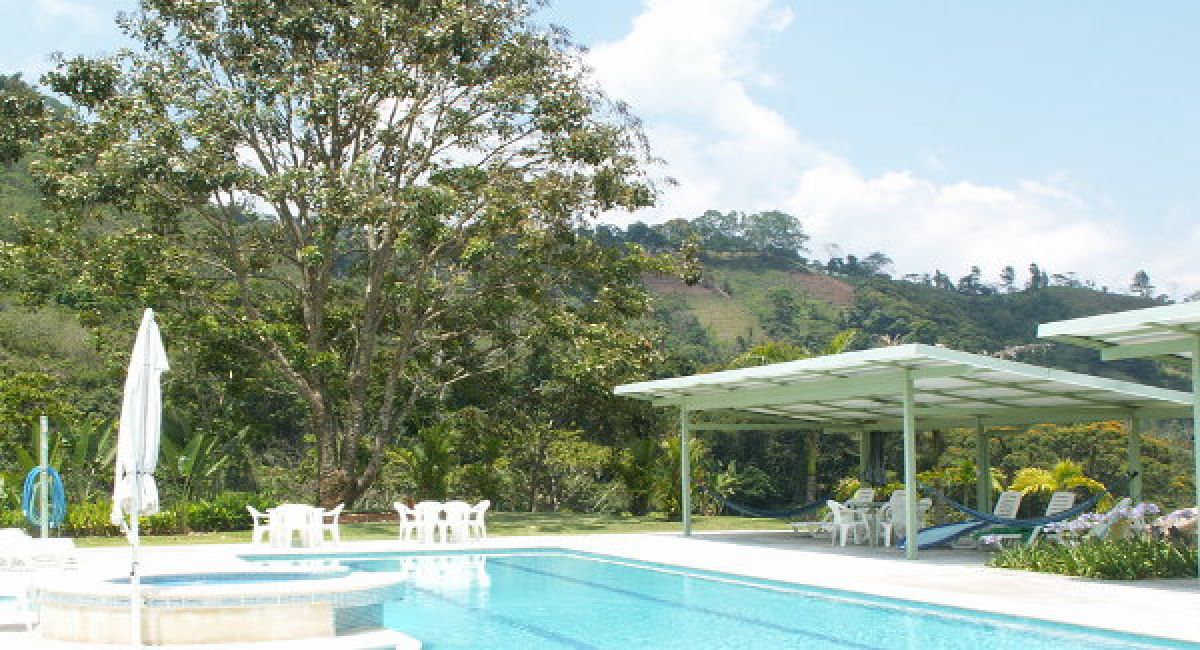
Where are you from, Terry and Viv, and what are you doing nowadays?
We were both born and raised in British Columbia, Canada but moved to Alberta in the early 1980's. I retired in August of 2014 after 38 years as a Power Engineer with the same company. Vivian also retired in August after having worked as a Legal Assistant with a law firm in Red Deer, Alberta.
Why did you choose to move to Costa Rica?
We had started looking for places to retire in since 2005. We looked at British Columbia, but we wanted away from the snow and cold. We looked extensively at Mexico for a number of years, but found we were not suited to the legal complications of actually owning land, as well as the political unrest. We spent another year researching and visiting Belize, but it was not for us. We visited Costa Rica in 2010 and toured the whole country with the exception of the Nicoya Peninsula and the Caribbean Coast. We fell in love with the area that we chose and purchased land in 2011.
What were the procedures to follow for Canadian nationals to move there?

The rules and regulations seem to change weekly, so I am hesitant to comment on this. We followed the procedure that was in place at the beginning of 2014 and presently have our comprobantes (temporary residency) and are awaiting our Cedulas (permanent residency). Everything was relatively simple and required documents such as an original marriage certificate, original birth certificate, and a police record check. All documents were submitted through a lawyer of our choice. The next step involved giving fingerprints, taking pictures, embassy visits, banking procedures etc. A long but uncomplicated process.
How long have you been in the country?
We have been in Costa Rica for six months and will remain here permanently. There is just my wife and I, and our two cats.
What has attracted you to La Palma?
A number of things, but the climate was the most influential factor. At an elevation of about 2,900 feet, we have an average high of 28 °C and an average low of 18 °C. Other factors included the proximity to San Jose, a modern hospital which is 17 km away, the type of fauna and foliage of the area, and the fact that there was a well-established community already in place.

Was it difficult to find accommodation there?
There were houses for sale and houses available for rent in our area. We opted to have a house built on the three acres of property that we purchased. Houses for sale and long and short-term rentals are still available.
How do you find the Costa Rican lifestyle?
We absolutely love it. We take everything one day at a time and if we head into the city with six things to do and come back having two of them done, we consider it a successful day.
Have you been able to adapt yourself to the country and to its society?
Very much. We have been involved in a local Christmas drive, senior's activities for the locals, church fundraisers, local "bingos", etc. We also work closely with the two local schools.
What does your every day life look like in La Palma?
My wife exercises daily with other ladies in the community. I am involved with the daily maintenance and running of our small community. I am the Secretary of our local association. My wife takes weekly Spanish classes and teaches weekly English classes. We have a garden and many fruit trees. Potluck suppers happen a couple of times a month, as well as trips to San Jose for bigger shopping. Moreover, there is always the community pool for recreation.
What has surprised you the most at your arrival?

The reluctance of many foreigners to learn the Spanish language. Costa Rica is a Spanish speaking country and we are fortunate to be guests. Everyone should adapt to speaking Spanish.
Your favorite dishes?
We don't really have anything that qualifies as a favorite. We are always open to trying new foods. Having said that, there is a local Soda about a kilometer down the road that serves the most awesome fajitas!
What is your opinion on the cost of living in Costa Rica ? Is it easy for an expat to live in the country?
It depends on your chosen lifestyle. If you were to try and eat exactly as you did in Canada or the USA, I think that food costs would be equal. If you adapt to the local cuisine and frequent the local ferias, it is considerably less. Vehicles, on the whole, will cost you more here in the way of purchase price, gas, tires, and brakes. Other things are quite a bit less expensive. For example, our house tax is US$ 400, monthly water is US$ 8, our electricity runs about US$ 75.
How do you spend your leisure time there?
Golfing, swimming, walking, reading, and nature viewing.

What are the differences between life in Costa Rica and in Canada?
You cannot beat Canada in the summertime but in Alberta you only really have two true months of summer. Costa Rica's climate is wonderful and the Pura Vida attitude will ensure that we will live longer.
Do you miss your home country?
My wife does somewhat. I do not miss it at all.
Would like to give any advice to soon-to-be expatriates?
Start your planning and research as soon as humanly possible. Do not listen to people who try and tell you where to live. Come here and experience the climate yourself. There are many people out there who think they have done it right and are not shy about telling you. Avoid these people.
What are your plans for the future?
I'll continue to learn Spanish and continue to participate in the local community. I will also invite friends down for a visit, and of course, try to see more of this beautiful and diverse country.



















